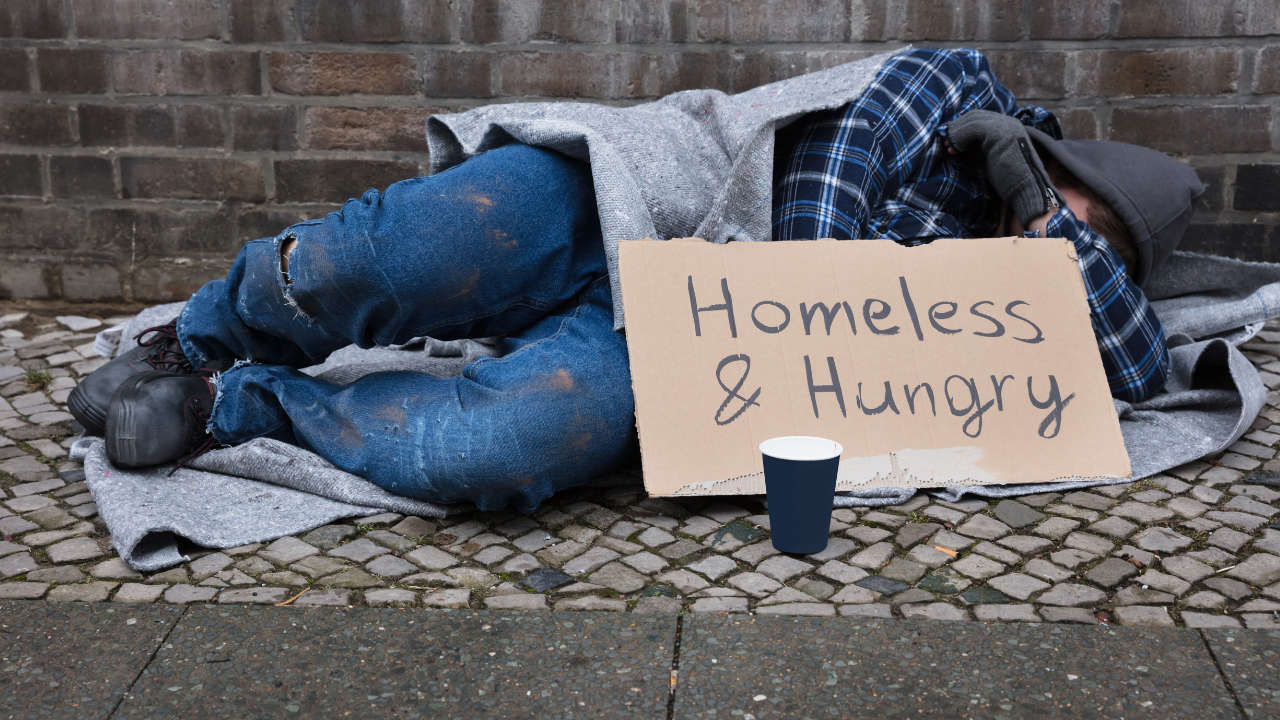
A champion of homeless people says the closure of Lancaster’s night shelter could lead to more people dying on the streets.
Phil Moore said the decision to shut the homeless shelter at Christ Church after almost 30 years has had “a significant impact” on rough sleepers in the city.
Mr Moore, manager of the Lancaster & District Homeless Action Service (LDHAS), said he is worried that there is now nowhere safe for vulnerable people to go in the city centre at night.
He fears they could come to harm both from the winter weather and physical attacks.
Lancaster City Council said the night shelter closed after a "number of critical risks were found", partly to do with worries about possible Covid infection.
We asked Mr Moore if there was a concern that more homeless people could die on the streets of Lancaster if the night shelter does not reopen.
He said: "It is for me. Certainly.
“It's not only being exposed to the elements, it's being exposed to the negative attention of others who don't wish homeless people well.
“We've had a couple of instances recently where homeless people have been attacked simply because they are homeless and vulnerable.
“The average age of a person's life expectancy on the streets is 46 for men and 44 for women. That speaks volumes. That shows what kind of impact it's having. It's the mental health, not just physical health that continues to decline while on the streets.”
Mr Moore, who runs the LDHAS centre on Edward Street which offers meals for homeless people during the daytime, said: “When we close, there’s nowhere to go, they are just out on the street.
“For those with complex needs, it has had a significant impact.
“This week alone, there are four or possibly five people who we would have said to them, you need to get to the night shelter tonight.
“There are hostels, but there is a referral process and that doesn't happen immediately.
“So they choose shop doorways, or wherever they feel safe. They have a sleeping bag and they find their way.
“It may not be endless nights on the street, there may be some respite from that in some other substandard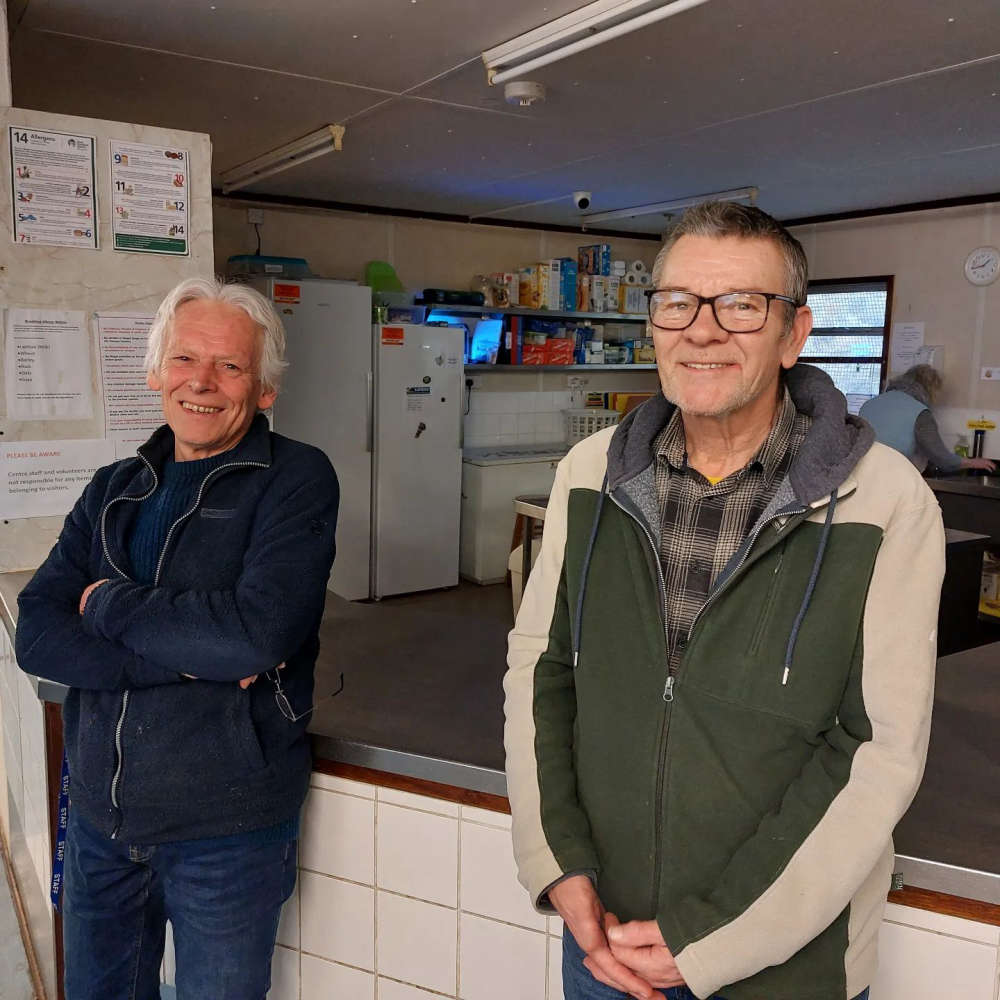 accommodation, but there isn't anywhere long-term for them to go."
accommodation, but there isn't anywhere long-term for them to go."
Mr Moore (pictured on the left, with colleague Grahame Legg) said that while there had been a drop in the number of people using the LDHAS centre recently, mainly due to the Covid pandemic, he expected there would be a rise in newly-homeless people in Lancaster in the coming months.
“We have had quite a lot of success in recent months because there are now private landlords who focus on people who have complex needs, so they can qualify for a higher rate of housing benefit,” he said.
“They might have their own room, share a kitchen or a bathroom, and that is working well, we've placed eight or nine people through that route over the past six months.
“People are also being temporarily accommodated in local bed and breakfasts.
"The majority of those are in Morecambe. This had created something of a drop in numbers (at LDHAS).
“But a roof over their head doesn't necessarily solve the problem for people with complex needs. They still have the issues that led to them becoming homeless in the first place.
“And we are expecting an increase in people who are newly homeless, due to an increase in evictions and the cost of living.”
Listen to Phil Moore talking about the closure of the Christ Church night shelter:
Rev Carol Backhouse, vicar of Christ Church, said the closure of the night shelter (pictured below) had been “a real blow”.

“We have been told by the council that there is no longer a need for communal night shelters, and that the council will offer accommodation to anyone who is homeless,” she said.
"We had a letter from the council, outlining concerns about how the shelter was being run.
"We took advice, and until we can meet those standards, we have to suspend things.
"The current Lancaster City Council position is that they don't want communal shelters to be open, for (Covid) infection control issues, because of men and women sleeping alongside each other in an open church hall, it's not the most dignified of places.
“It’s very sad that it’s been needed in the first place, to provide a meal and a roof over people’s heads.
"But (recently) we have seen more (homeless) people die from suicide and drug overdoses than we’ve ever seen before. These are people who are very vulnerable. So it’s a big worry for us.
“While it is great that the council is providing accommodation for people, we want to see the care and support continuing for people, to work through mental health issues, addictions, financial troubles, and all the other things that come with street homelessness.
“There is also the loss of the sense of community that the night shelter provided. Our volunteers have got to know our guests over the years. It was a place where people could come to find a bit of company.”
Rev Backhouse said the night shelter first opened 29 years ago after a homeless person came to the vicarage and asked to stay overnight in the church.
It then developed over the years, as demand and the number of volunteers helping at the church hall grew.
Lancaster City Council said the decision to close the shelter was taken after Christ Church was issued with "urgent recommendations and guidance on safer working practices".
The council gave these in conjunction with Housing Justice (a national charity working with night shelters) and the government Department for Levelling Up, Housing and Communities (DLUHC).
“A number of critical risks were found and Christ Church Night Shelter closed in order to address the issues raised," said Councillor Cary Matthews, cabinet member for homelessness and housing,
“These recommendations have now been superseded by Government Covid-19 Guidance relating to the provision of night shelters.
"The guidance aims to protect vulnerable rough sleepers by reducing the potential transmission of the virus if self-contained sleeping spaces were not an option and asks providers and commissioners of night shelters to consider whether their provision can accommodate this.
“The council has offered guidance and support to Christ Church to address the recommendations initially proposed and more recently discussions have taken place around support to remodel the previous offer into a new model supporting those vulnerable residents accommodated by the council in temporary or more permanent accommodation."
Lancaster City Council also said they were “making significant progress in helping some of the district’s most vulnerable residents to turn their lives around and leave the streets behind for good” and in January 2022 had provided accommodation to 18 rough sleepers or people at risk of sleeping on the street.
A council spokesperson said its homelessness team continued to patrol rough sleeper hotspots in the area to remind those they come across of the danger they are in at this time of year and to offer accommodation, along with access to the Covid-19 vaccine.
The spokesperson said the council also provided access to a range of accommodation, specialist support including health and wellbeing services, as well as one-to-one support via partners and local agencies to reduce the likelihood of them returning to the streets.
Councillor Matthews said: “Whilst the number of cases of homelessness is very small in comparison with other areas, the fantastic work being undertaken by the council and its partners to encourage people to access the shelter on offer and the one to one support they need to give them every opportunity to change their circumstances, as well as protect them from Covid-19, will continue in earnest.
“We continue to work closely with our residents and partners to understand what works and what additional support and help can be provided. Our work will not stop until every rough sleeper is a former rough sleeper and in a home they can call their own.”
The council said that anyone wanting to donate money to give local homeless people a real chance of turning their lives around, rather than handing donations to those who re visibly begging on the streets, can do so online via Lancaster District Street Aid at www.totalgiving.co.uk/appeal/streetaid
You can also donate £3 by texting STREET to 70450.
Donations via the scheme generate a pot of funding that individuals can apply for, with assistance from their supporting organisation, and includes provision of furniture and other home essentials, help to pay for hair appointments, education/training courses, and clothing for job interviews.
Anyone worried about someone who might be rough sleeping or in danger of becoming homeless themselves, can call the council on 01524 582257 during office hours or 01524 67099 outside office hours and at weekends. Alternatively, you can email homelessteam@lancaster.gov.uk and someone will be in touch.



 BIG FIGHT COUNTDOWN: Tyson Fury's most memorable Morecambe moments
BIG FIGHT COUNTDOWN: Tyson Fury's most memorable Morecambe moments
 Meeting will rally business community together after shock Lancaster bakery closure
Meeting will rally business community together after shock Lancaster bakery closure
 INTERVIEW: Award-winning festival set to celebrate Italy in Lancaster
INTERVIEW: Award-winning festival set to celebrate Italy in Lancaster
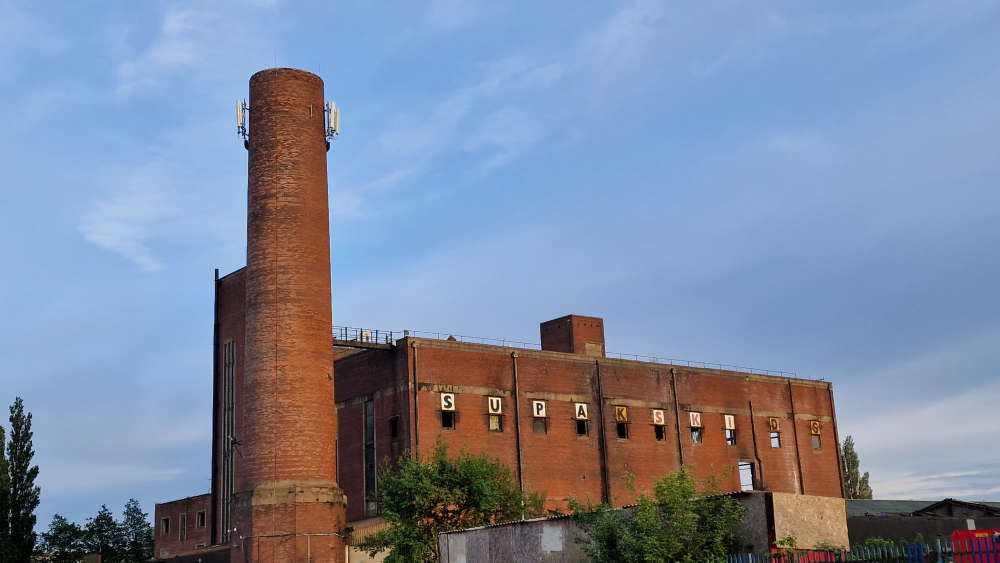 Lancaster MP welcomes return of mobile phone coverage
Lancaster MP welcomes return of mobile phone coverage
 INTERVIEW: Historic Heysham pub to reopen as new management aims to 'bring community together'
INTERVIEW: Historic Heysham pub to reopen as new management aims to 'bring community together'
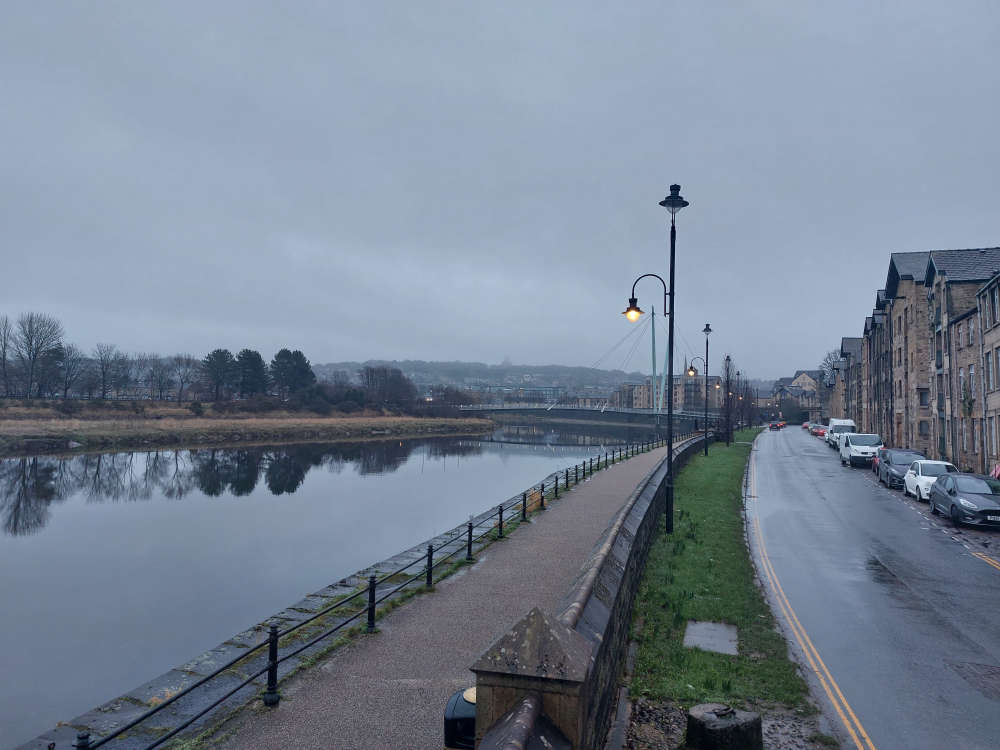 Traffic diverted as Lancaster quay closed for rail bridge works
Traffic diverted as Lancaster quay closed for rail bridge works
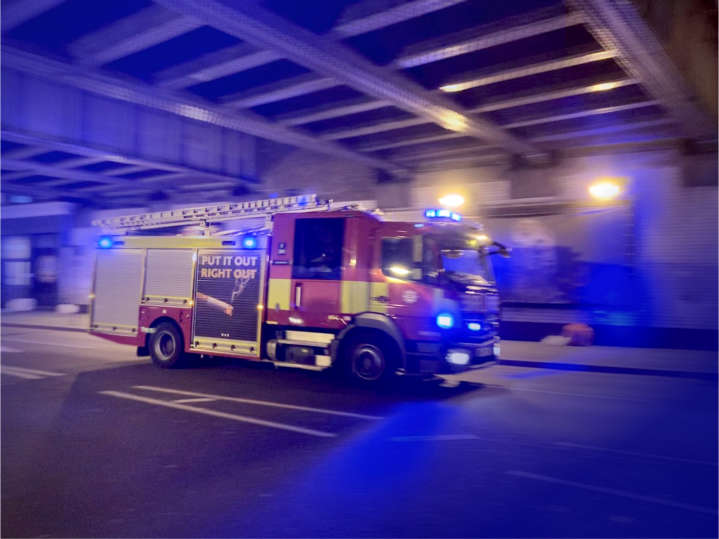 Caravan fire in Morecambe spreads to two other vehicles
Caravan fire in Morecambe spreads to two other vehicles
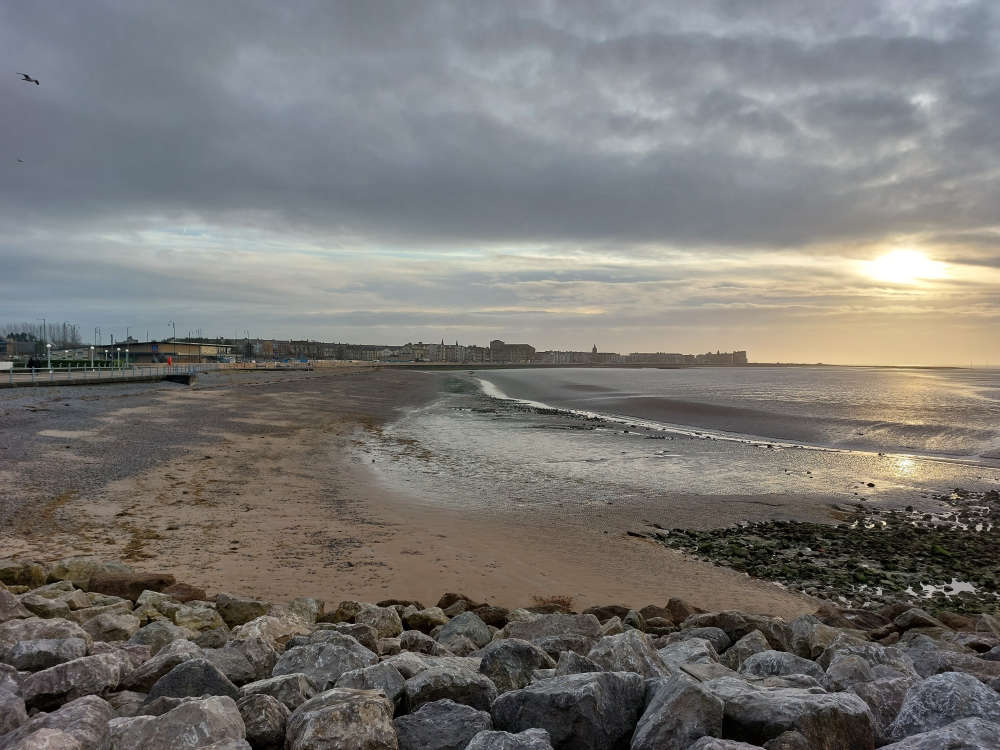 Morecambe's two bathing beaches receive Seaside Awards amid calls to improve water quality
Morecambe's two bathing beaches receive Seaside Awards amid calls to improve water quality
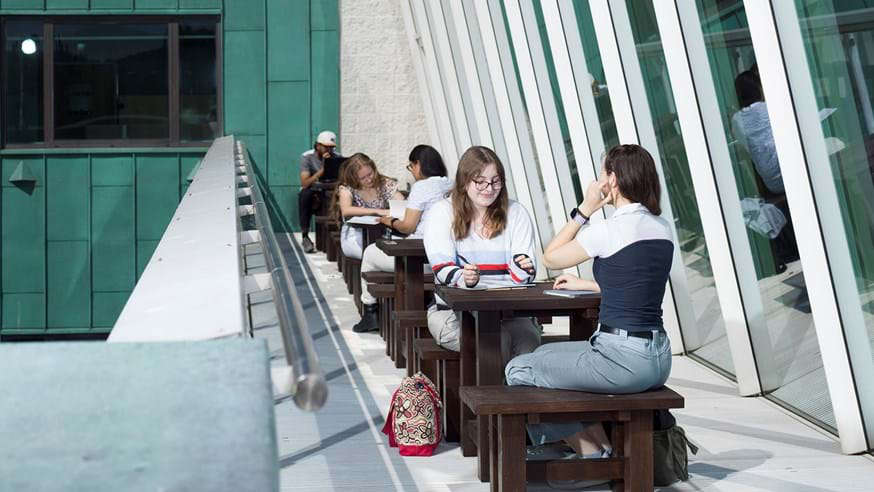 Lancaster remains best university in North West England in Complete University Guide
Lancaster remains best university in North West England in Complete University Guide
 'Music with the Mayor' initiative launched to support North Lancashire’s Citizens Advice
'Music with the Mayor' initiative launched to support North Lancashire’s Citizens Advice
 DIARY: Beyond Radio presenter fighting cancer continues his '60 Before 60' challenge
DIARY: Beyond Radio presenter fighting cancer continues his '60 Before 60' challenge
 BIG FIGHT COUNTDOWN: Tyson Fury's father John headbutts Usyk supporter ahead of undisputed heavyweight title fight
BIG FIGHT COUNTDOWN: Tyson Fury's father John headbutts Usyk supporter ahead of undisputed heavyweight title fight
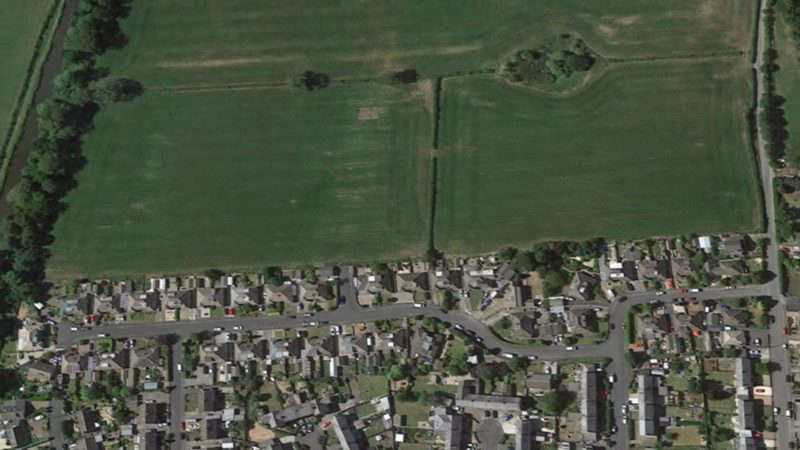 Decision to refuse Galgate housing scheme planning permission upheld following public inquiry
Decision to refuse Galgate housing scheme planning permission upheld following public inquiry
 INTERVIEWS and PHOTOS: The story of Highest Point festival 2024
INTERVIEWS and PHOTOS: The story of Highest Point festival 2024
 INTERVIEW: Lancaster prison officer backed by Tyson Fury wins sport contest ahead of Miss England bid
INTERVIEW: Lancaster prison officer backed by Tyson Fury wins sport contest ahead of Miss England bid
 VIDEO and INTERVIEW: Lancaster schoolboy, 10, makes drum 'n' bass DJ debut at Lancaster festival
VIDEO and INTERVIEW: Lancaster schoolboy, 10, makes drum 'n' bass DJ debut at Lancaster festival
 Highest Point 'Lancaster Rocks' night cancelled due to thunderstorms warning
Highest Point 'Lancaster Rocks' night cancelled due to thunderstorms warning
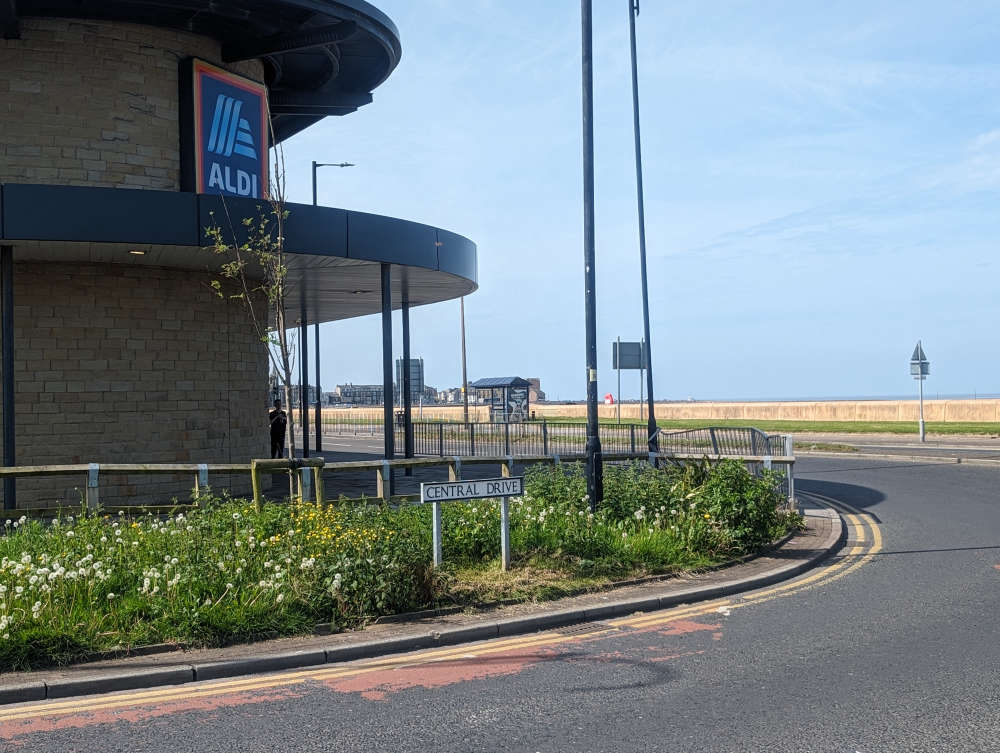 Quad bike rider dies after road crash in Morecambe
Quad bike rider dies after road crash in Morecambe
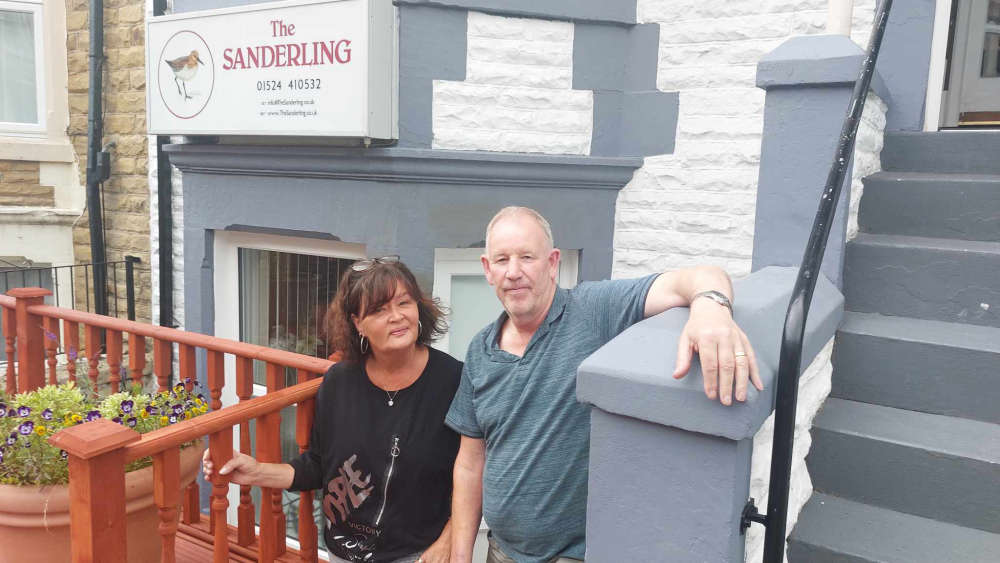 Morecambe guesthouse couple to star on reality TV show 'Four in a Bed'
Morecambe guesthouse couple to star on reality TV show 'Four in a Bed'
 PHOTOS: Northern Lights dazzle on Highest Point festival day one
PHOTOS: Northern Lights dazzle on Highest Point festival day one




